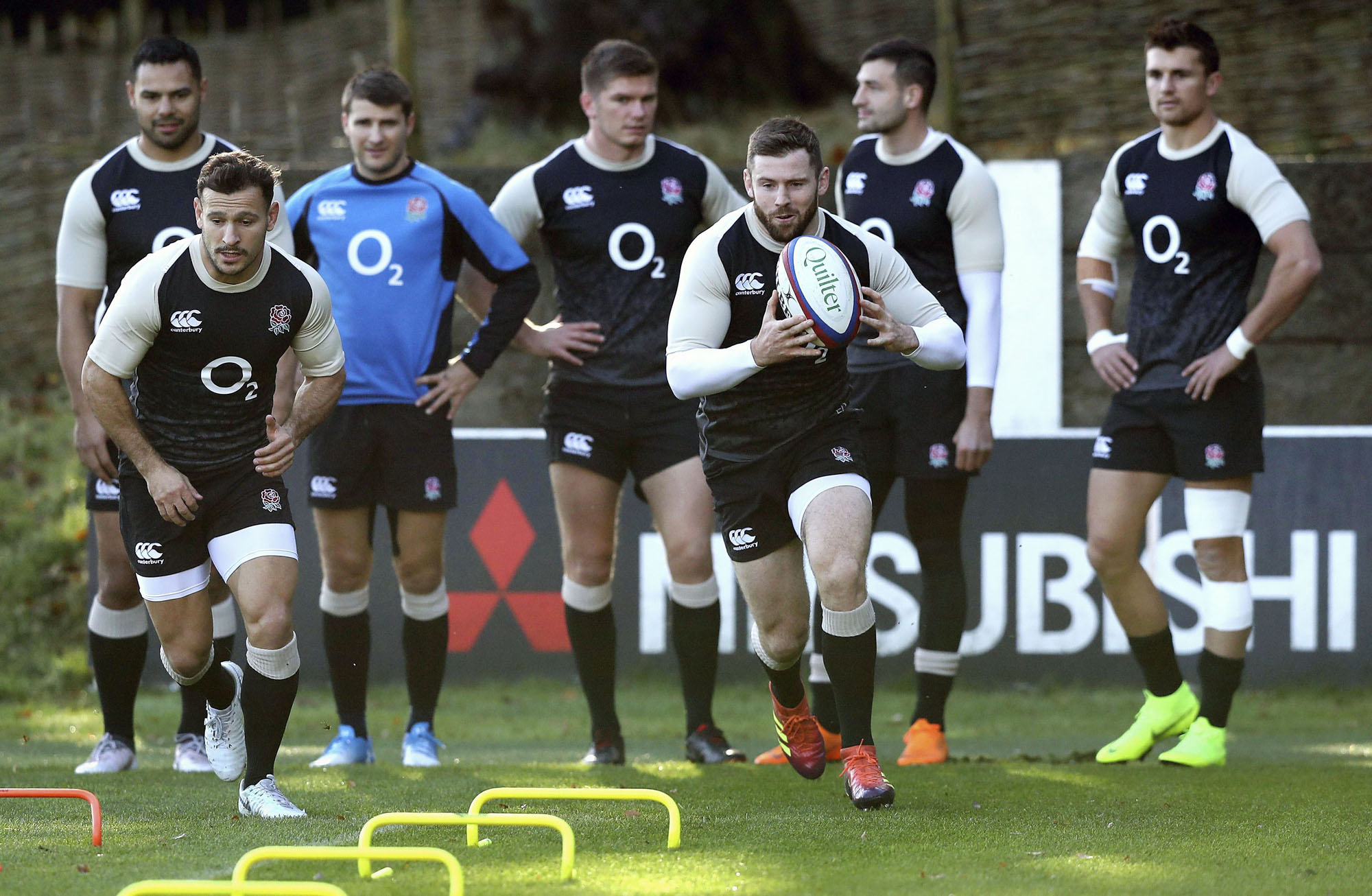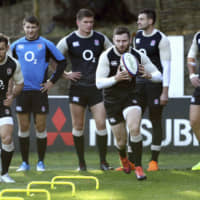It's 100 days to go until the Rugby World Cup, and all the countries are about to get their players together for training.
With England, we get ours on July 8 and then we'll have three four-day camps around the country. Then we go to Treviso, Italy, and have a 10-day camp for heat acclimatization, because Treviso has the same climate and conditions as Tokyo.
The big thing for us now is ensuring our planning is right. We have to make sure we've got the right balance between having enough training to get the players physically fit for the World Cup, and having enough rest so that they're at their best.
Under the regulations here in England, we have to nominate 45 players for selection. Those players then come under our control and not the clubs' control. We're unique in that our players are owned by the clubs, so we have to pay to use the players.
We'll choose our final squad of 31 players for the World Cup on Aug. 12. That's the main part of the job as the head coach of the national team. It's not difficult. The players select themselves.
The one thing you don't want to do is get swayed by the media. The media has favorite players and likes popular players, but popular players don't win test matches.
Just look at the history of players who have won the World Cup while wearing the No. 10 shirt, for instance. Jonny Wilkinson of England, Butch James of South Africa, Dan Carter of New Zealand. That tells you something about the kind of No. 10 you need to win the World Cup. They need to be a good, tough defensive player. Those three guys all had those characteristics.
History teaches you a little bit about selection, what works at the World Cup and what doesn't. Just because you're playing well domestically, it doesn't mean you're going to be a good World Cup player.
Our squad is probably about 85 percent penciled in. We've allowed one X-factor forward and one X-factor back to come through late, and we feel like we've got one of those in each area that can add some freshness to the squad.
It's an ongoing process. I've thought about the selection process every day for the last four years, even at the start of my tenure here. In the first two years, you use a lot of experienced players because you need to win. Then the next year you're looking to see how you can develop the team, and in the last 12 months you're moving toward your best squad for the World Cup.
There are four factors when you're looking at selections. You're looking at their historical form, their present form, their general character and their present attitude. You're weighing all of those four things up, and for each position within the team, each of those factors has a slightly different weight.
We have a process to inform players who have been in contention for the squad but aren't selected. I'll give them a ring and let them know. I'll give them some general details about why they haven't been chosen, and that will then be followed up by a phone call from our assistant coach, who will deal with the more technical issues.
That's the most unpleasant part of the job. You've got guys who have been working hard and giving everything they've got. But at the end of the day, selection is a judgment. It doesn't mean that they're not good enough, it's just that they haven't been selected this time. It's tough, particularly at the World Cup, because for some guys it might be their last opportunity.
When you get control of your players, that's when you can make significant changes physically and tactically. It's a pretty exciting period.
I think you get a combination of great excitement and anxiety among the players. Excitement because they have this great opportunity to do something for their country, playing in the third-biggest sporting event in the world. Everyone will be watching and they can do great things.
Everyone has a sense of anticipation, but there's also anxiety because there is still selection competition. There's a balance there.
Eddie Jones is the head coach of England's national rugby team. He coached Japan from 2012 to 2015.




